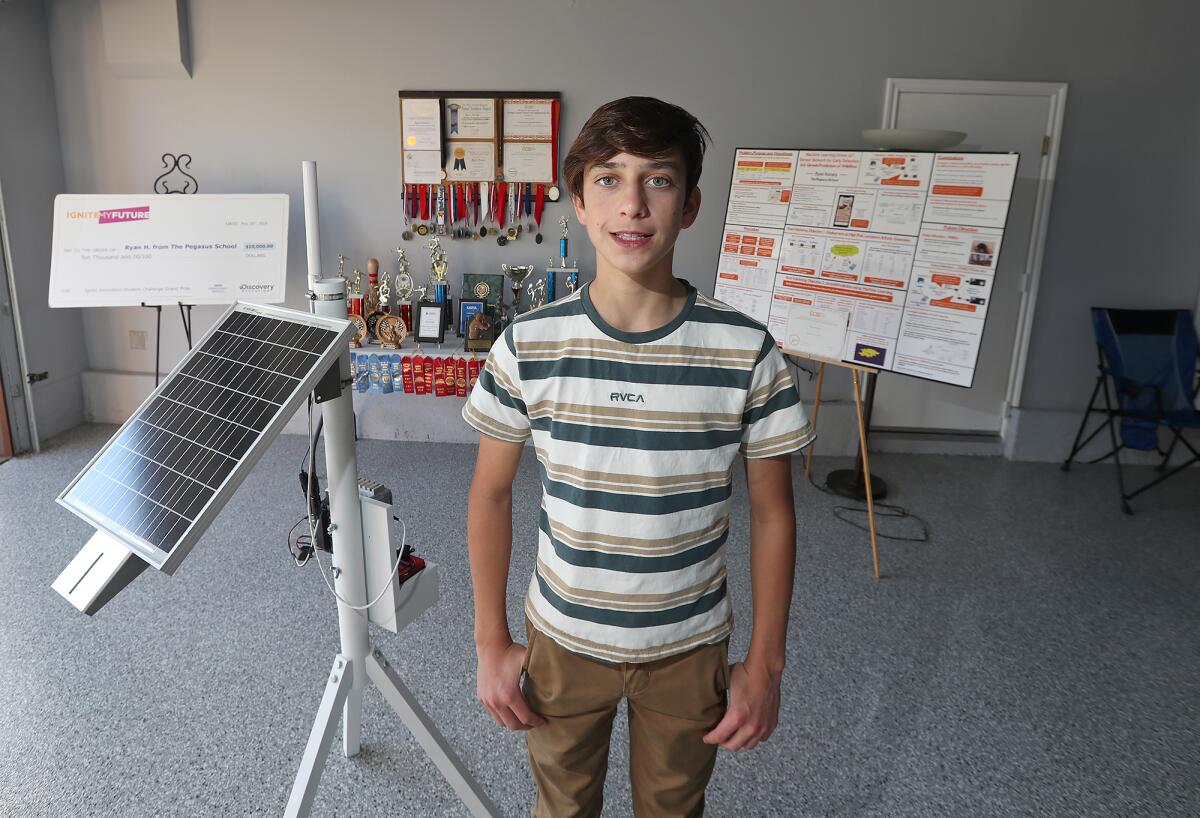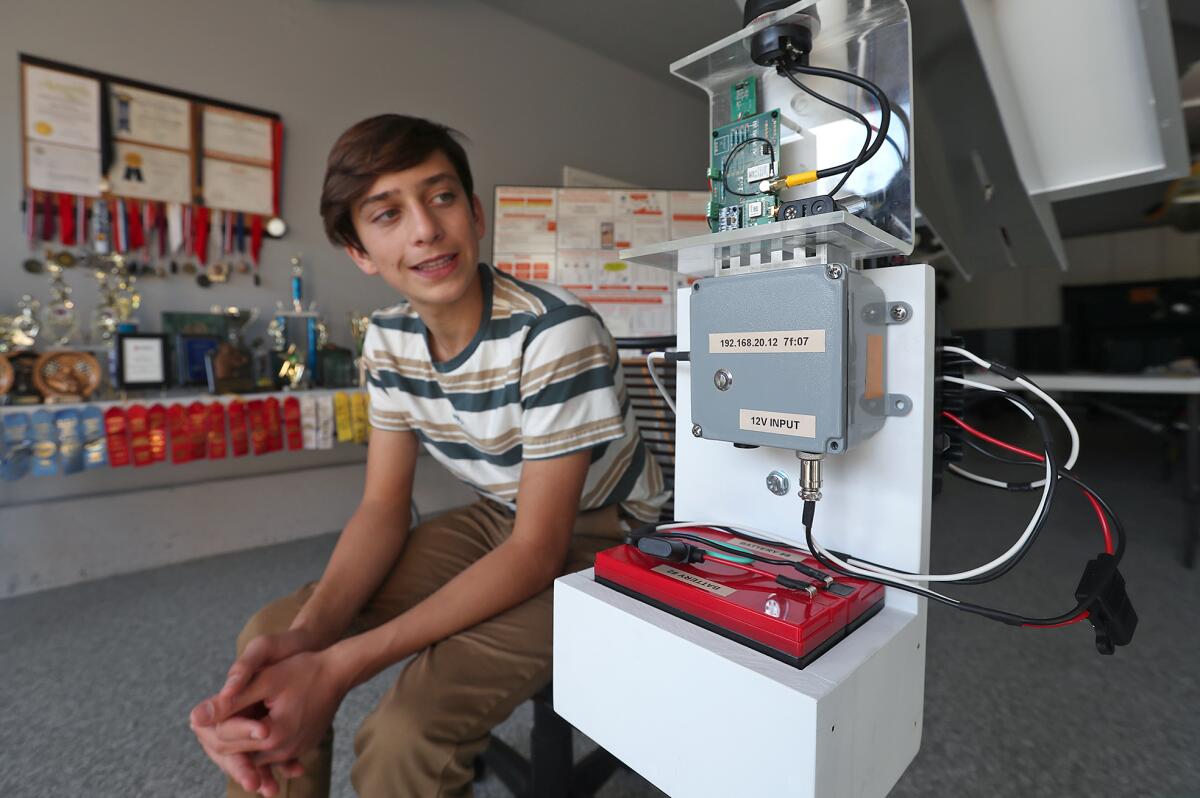Newport Coast teen who launched science startup company gets first client

The realities of fire danger have never been more pressing in Southern California.
The Emerald fire that struck between Laguna Beach and Emerald Bay in February — the middle of winter — was proof of that.
“We no longer have a fire season,” Orange County Fire Authority Chief Brian Fennessy said at the time. “We have a fire year.”
It is with that backdrop that a Newport Coast teenager is trying to make a difference. It started with a science project.
Ryan Honary, 14, now an eighth-grader at the Pegasus School in Huntington Beach, was a finalist in the prestigious Broadcom MASTERS science competition in fall 2020 with his early fire detection system. After receiving two grants from the Office of Naval Research, he launched a startup company, SensoRy AI, last May.
Now he has his first client. Ryan has fine-tuned his system and is teaming up with the Irvine Ranch Conservancy, with the hope of catching and even preventing large-scale environmental disasters from happening.
The pilot project tests Ryan’s mesh network of sensors for use in land management and fire prevention in sensitive areas. Ryan demonstrated the technology, which features detectors, intermediate nodes and a mini meteorological station, for Irvine Ranch Conservancy earlier this year at its native seed farm. He uses Bluetooth for the detectors to communicate with the intermediate nodes.
“Instead of using WiFi, we changed it to Bluetooth, so it will consume a lot less energy,” Ryan said. “It can run for a couple of years just with two AA batteries.”

Ryan’s technology sparked the interest of Dr. Nathan Gregory, the Conservancy’s chief programs officer, who has been working with Ryan and his father Hooman over the last few months.
“The idea was to put them out in controlled field conditions to see how it would work, and that would give us a basis for further field testing under different conditions moving forward,” Gregory said. “Our biggest threat here is when we have red flag days and really high winds. Then, it’s less about how much dry vegetation there is than it is about just preventing fires from starting in the first place. I think what that did was prompt a broader discussion about what are some other interesting applications for this.”
Gregory, who earned a doctorate degree in ecology and evolutionary biology from Princeton University, said Ryan’s equipment can be used for different applications like testing soil moisture, not just for detecting fires.
“We’re really interested in general in leveraging technology so that we can collect good data on wildlife in particular, and other natural resources that we manage, without having the disruption of the human presence,” he said.
Ryan said the next step in fire prevention is using drones, machine learning and artificial intelligence to predict when power line covers have corroded to the point where they can be dangerous and create a spark.
“What I want to attempt to do next is see if there’s any way to help prevent the fire from even happening,” said Ryan, who has been accepted into Stanford Online High School next year.
Hooman Honary said Gregory has become a mentor to Ryan. Both father and son are excited that Ryan’s technology could also be used to combat other environmental issues.
“For [Ryan’s generation], I don’t think it’s some luxury anymore,” Hooman Honary said. “For us, an environmentalist was just some crazy idealist guy and no one took him seriously. For their generation, the world is changing. There’s fires, there’s global warming. It’s not a political issue, just things are changing … and we’re going to have to learn to leverage technology to solve these problems if possible. I’m happy that he’s on this path.”
All the latest on Orange County from Orange County.
Get our free TimesOC newsletter.
You may occasionally receive promotional content from the Daily Pilot.




